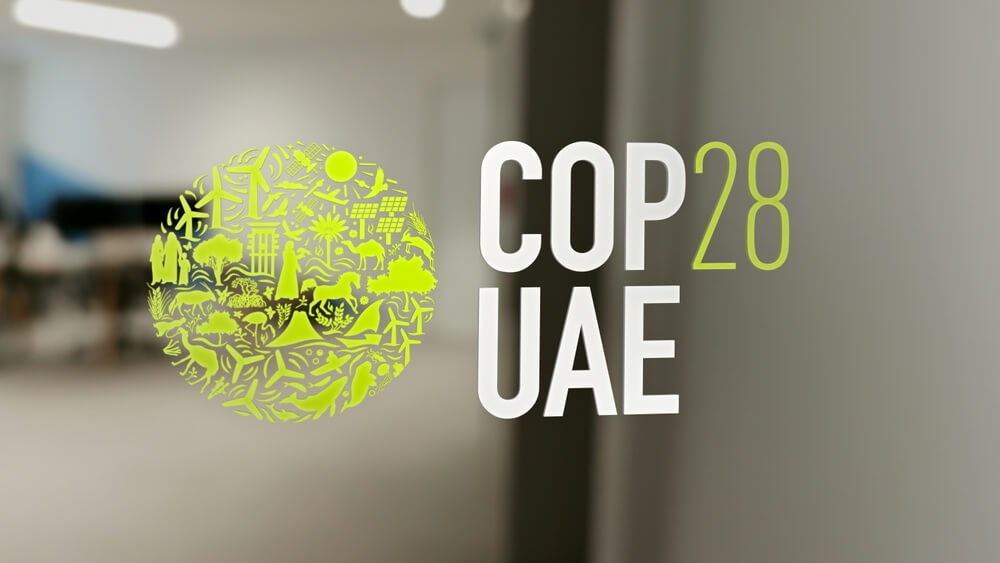The Climate Change Conference (COP28) will start in Dubai soon. However, there are not many reasons for optimism.
Despite the host country's ambition to position itself as one of the leaders in the fight against climate change, harsh statistics and unfulfilled promises to reduce gas emissions will mark the annual summit.
Starting on November 30 and for the following 2 weeks, COP28 will gather around 70,000 participants, representatives of governments, climate experts and leaders from the industrial sector. The conservative UAE authorities have even allowed climate activists into the country even though they plan to protest during the summit.
This year's conference comes at the end of a year that saw the highest recorded average global temperature ever, followed by heat waves that devastated Europe, the US, China, and other regions.
Prominent climate experts claim that the use of fossil fuels directly caused heat waves that occurred last June and July.
The first report on fulfilled obligations
The first global stocktake report, the result of a 2-year evaluation of global progress towards meeting the goals set in 2015 at the Climate Summit in Paris, will be presented to the COP28 participants.
However, there is no good news in this report. The situation is quite alarming. At the global level, countries are still very far from the goal set in Paris 8 years ago to stop global warming at 1.5 degrees Celsius above pre-industrial levels. The time limit that nations agreed to stop global emissions is near its end.
The September technical report's conclusion that the current policies have prevented the worst-case scenario of warming between 4 and 6 degrees Celsius by 2100—that is, they have lowered the degree of warming in line with 2015 predictions—offers some hope.
If the current climate policies continue, the temperature by 2100 will be as much as 2.7 degrees Celsius higher
If the current climate policies continue, the temperature by 2100 will be as much as 2.7 degrees Celsius higher, much beyond the promised and predicted retention of 1.5 degrees Celsius, even according to this development, which is considerably milder than the worst-case scenario.
Due to such worrying findings, stocktake asks countries to make a much greater effort to reach net-zero emissions by 2050. But it seems unlikely that greenhouse gas emissions will be reduced by at least 43% by the end of the decade, as requested in the report.
This is particularly true when considering that the principal industrialised countries record a continuous rise in the variables influencing global warming rather than a decline.
Ambitious goals of the host
The UAE has set several goals for this year's UN Climate Change Conference. It wants to direct the debate in a feasible and ambitious enough direction to overcome the current gap between plans and their fulfilment.
It will promote the initiative of about 60 countries, led by the US and the EU, for a global energy efficiency increase through a threefold increase in renewable energy sources and a doubling of energy savings by the end of this decade.
However, there is also a strong front of sceptics regarding this goal, primarily in China and India, as large coal consumers. So, the fate of this initiative will depend on their position at the summit in Dubai.
 COP28 comes after extreme weather events and immediately after the first stocktake, with rather negative findings
COP28 comes after extreme weather events and immediately after the first stocktake, with rather negative findings
The goal of global climate finance, which will also be one of the principal topics at the conference, will be demanding to achieve. At the previous summit in Cairo, nations agreed to reach net-zero emissions by 2050, which however, requires investing $4-6 trillion per year in renewables and infrastructure.
However, since the beginning of this year, only $358 billion has been invested worldwide, which is only a fraction of the requirements that governments set for themselves a year ago.
This topic will, without a doubt, provide scope for the ever-present gap between North and South as a division front where issues related to climate protection are only a part.
Little room for improvement
Progress in making governments more committed to the goals is possible, as this year's extreme weather has made climate change more visible in its devastating power.
There is a possibility that the pressure, primarily from the EU, on the shared acceptance of the obligation to "phase out" fossil fuel emissions will bear fruit. A year ago, such a requirement still existed. However, a less binding wording regarding the "phasing down" of fossil fuel use was adopted.
The summit participants would have little room to resist the obligation to "phase down" fossil fuel emissions
COP28 comes after extreme weather events and immediately after the first stocktake, with rather negative findings, so the summit participants would have little room to resist the obligation to "phase down" fossil fuel emissions.
It would mean stopping the construction of infrastructure for fossil fuels and the gradual reduction of the existing coal industry until its complete abolition by 2050.
There are many sceptics regarding the possibility that this breakthrough will happen at the Dubai Summit. However, the concept is already on the table and has strong sponsors, including the host and his great ambition to remove the negative image of a large producer of fossil fuels.